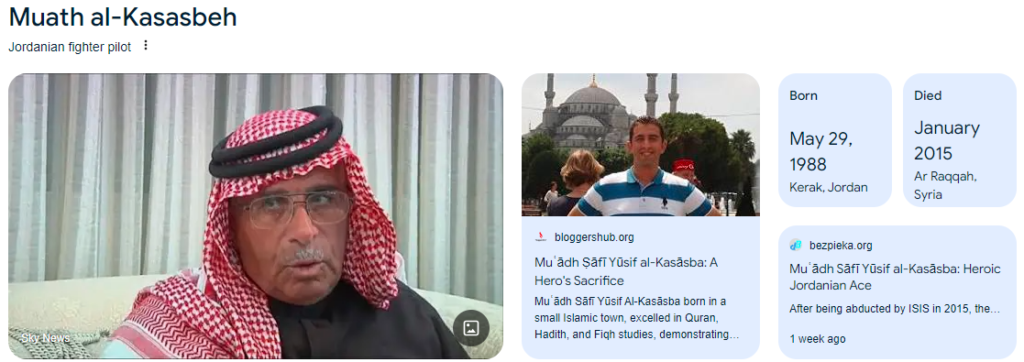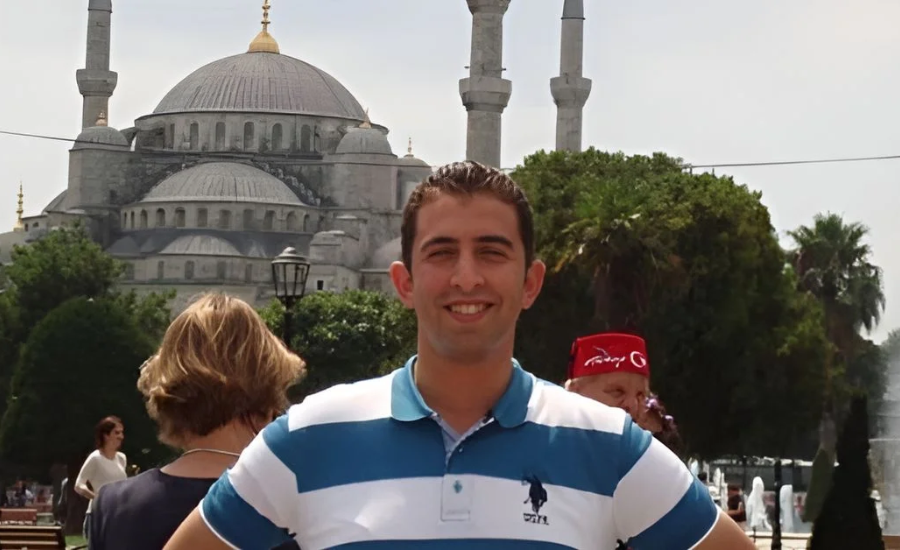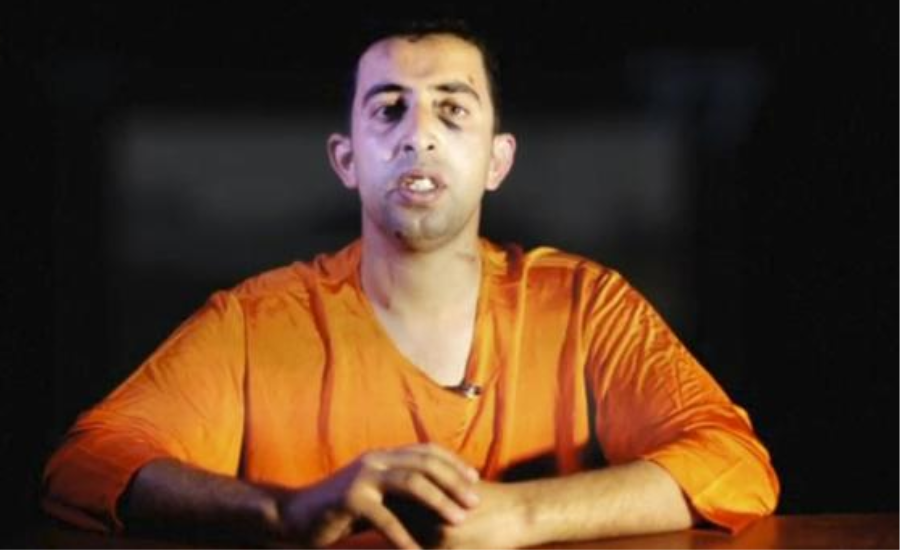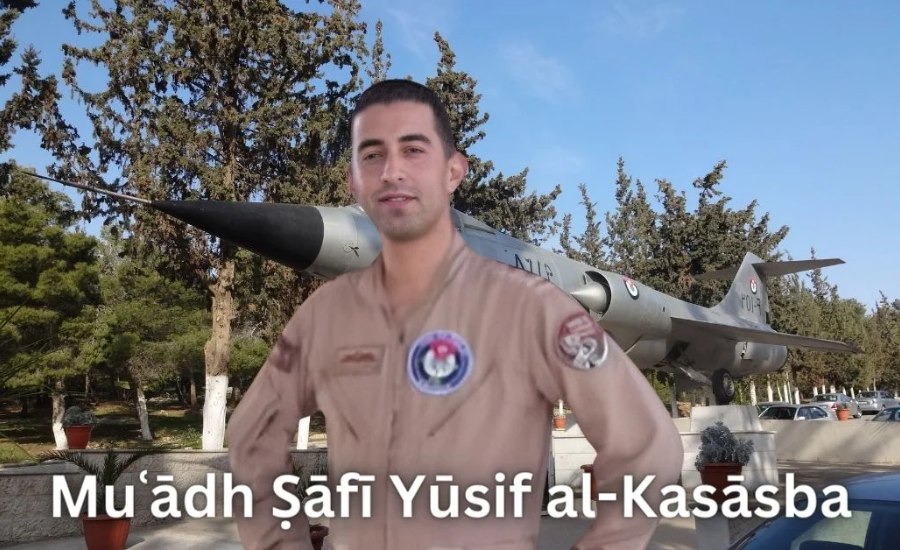Muʿādh Ṣāfī Yūsif al-Kasāsba, a Jordanian pilot, is remembered as a symbol of unparalleled heroism and national pride following his tragic death at the hands of the Islamic State (ISIS) in early 2015. His story extends beyond his bravery; it reflects the broader struggles against terrorism and its profound impact on individuals and nations alike.
Who Was Muʿādh Sāfī Yūsif al-Kasāsba?

Muʿādh Ṣāfī Yūsif al-Kasāsba was born in Jordan in 1988, and from a young age, he harbored a profound aspiration to soar through the skies. As a child, he would gaze at aircraft streaking across the heavens, envisioning himself in the cockpit, navigating the vast expanse above. This deep-seated dream fueled his decision to pursue a career with the Royal Jordanian Air Force.
Those who knew him described him as a person who consistently prioritized others’ well-being over his own. His ability to light up a room with his broad smile and his infectious laughter endeared him to friends and family alike.
In the Air Force, al-Kasāsba’s natural talent as a pilot quickly became evident. His rigorous training and unwavering commitment set him apart, earning him recognition as one of the most skilled pilots in his cohort. His dedication to both his country and his profession was apparent to all who worked with him, reflecting a profound sense of duty and excellence.
Early Life And Background
Childhood And Education
Muʿādh Ṣāfī Yūsif al-Kasāsba was born on May 29, 1988, in Karak, Jordan, into a family deeply rooted in military tradition. His father, Ṣāfī Yūsif al-Kasāsba, a respected retired military officer, played a pivotal role in inspiring Muʿādh’s commitment to his country.
Growing up in Karak, a city known for its historical and strategic significance, Muʿādh was immersed in an environment that valued discipline and dedication. He attended local schools where his exceptional sense of duty and relentless dedication were evident to both his peers and teachers. His formative years were marked by a deep-seated desire to follow in his father’s footsteps, embodying the values of honor and service that his family cherished.
Military Career
Upon finishing his secondary education, Muʿādh al-Kasāsba embarked on his journey towards fulfilling his lifelong dream by enrolling in the prestigious King Hussein Air College. His time at the academy was marked by exceptional performance and an unwavering commitment to excellence.
Muʿādh’s dedication to his training and his remarkable aptitude for flying quickly distinguished him from his peers. His rigorous approach to learning and his natural talent allowed him to ascend rapidly through the ranks. This reputation earned him the rank of First Lieutenant in the Royal Jordanian Air Force, solidifying his place as a key asset to his country’s military aviation capabilities.
The Path To Becoming A Fighter Pilot
Becoming a fighter pilot is a demanding and rigorous process, requiring years of intensive training and unwavering dedication. For Muʿādh al-Kasāsba, this journey began in his teenage years.
After graduating from high school, al-Kasāsba enrolled in the Jordanian Air Force Academy, where he embarked on a challenging path. The academy’s curriculum was extensive, covering complex subjects such as physics, mathematics, and aviation theory. However, the most grueling aspect of his training was the physical conditioning required to meet the demands of high-speed aerial combat. Fighter pilots must maintain peak physical fitness to endure the intense physical and mental stresses of flying at extreme velocities.
Upon graduating from the academy, al-Kasāsba continued to enhance his expertise by training on a variety of aircraft. He gained experience flying everything from small propeller-driven planes to sophisticated fighter jets. Each year of additional training further honed his skills, refining his abilities and expanding his knowledge.
By the time he achieved full qualification as a fighter pilot, Muʿādh al-Kasāsba had established himself as one of the top pilots in Jordan. His peers admired him for his proficiency and leadership, and his superiors entrusted him with critical missions, recognizing his exceptional capabilities and dedication to his role.
The Fateful Mission

On December 24, 2014, Muʿādh al-Kasāsba embarked on what would tragically be his final mission. He was part of a coalition force engaged in operations against ISIS in Syria, tasked with providing crucial air support for ground troops and targeting ISIS positions.
During this mission, complications arose, leading to a catastrophic event. Al-Kasāsba’s F-16 fighter jet crashed near Raqqa, Syria. The exact circumstances surrounding the crash remain somewhat unclear.
The World Holds Its Breath
The news of Muʿādh al-Kasāsba’s capture quickly reverberated across the globe, sparking a wave of concern and solidarity. Across the world, people anxiously awaited any positive developments, hoping for a resolution to the dire situation.
ISIS, notorious for its brutal tactics, exploited al-Kasāsba’s captivity for propaganda purposes. They released a series of videos depicting him in distressing conditions. Despite the harsh treatment he endured, al-Kasāsba’s resolve remained unshaken. In the footage, he appeared visibly beaten but resolutely maintained his dignity, refusing to capitulate to his captors’ demands.
In response to this crisis, the Jordanian government undertook a range of efforts to secure al-Kasāsba’s release. They proposed prisoner exchanges and sought to negotiate through various intermediaries, hoping to reach a peaceful resolution. However, ISIS remained steadfast in its refusal to consider any compromise, showing no inclination towards a peaceful negotiation or resolution.
A Tragic End
On February 3, 2015, ISIS released a harrowing video that reverberated with profound shock and horror around the globe. The footage depicted the brutal execution of Muʿādh al-Kasāsba, carried out in a manner designed to maximize terror and provoke outrage. The method employed was exceptionally cruel, intended to inflict the maximum psychological impact.
The news of al-Kasāsba’s death triggered an outpouring of grief and indignation both within Jordan and internationally. People everywhere were deeply affected by the loss of this courageous young man, who had dedicated his life to combating terrorism.
Jordan’s Response
Jordan’s reaction to Muʿādh al-Kasāsba’s murder was both immediate and resolute. King Abdullah II, who was in the United States at the time, cut his visit short and returned to Jordan in response to the unfolding crisis. He vowed that Jordan would retaliate forcefully against ISIS, signaling the nation’s determination to take a stand.
In the days following al-Kasāsba’s death, Jordan launched a series of intense airstrikes against ISIS targets in Syria. The operation, named “Muʿādh the Martyr” in tribute to al-Kasāsba, represented the most aggressive military response Jordan had undertaken to date. These strikes aimed to exact a significant toll on the terrorist group and demonstrate Jordan’s unwavering resolve.
Additionally, the Jordanian government took substantial steps to honor al-Kasāsba’s memory and support his family. He was declared a national hero, and measures were put in place to ensure that his family would be cared for.
The Impact On Jordan
Muʿādh al-Kasāsba’s death had a profound and unifying effect on Jordan. The tragedy deeply resonated across the nation, galvanizing a collective sense of grief and outrage. People from all sectors of society came together to express their condolences and support for al-Kasāsba’s family while denouncing the actions of ISIS. This tragic event also bolstered Jordan’s resolve in the fight against terrorism. Al-Kasāsba’s courage and sacrifice inspired many young Jordanians, leading to a surge in enlistments in the military.
In the political arena, al-Kasāsba’s death prompted a shift in Jordan’s foreign policy. The country adopted a more proactive stance within the international coalition against ISIS, and Jordanian leaders began to voice more forceful and assertive calls for global action against terrorism. This shift underscored Jordan’s dedication to taking an active role in the fight against extremist violence and reaffirmed its position on the global stage.
Global Reaction
The execution of Muʿādh al-Kasāsba elicited a wave of horror and outrage from the global community. Leaders from numerous countries condemned the brutality of ISIS and expressed their heartfelt condolences to Jordan and al-Kasāsba’s family, acknowledging the profound tragedy of his death.
The United States, a close ally of Jordan, responded by pledging increased support in the fight against ISIS. This pledge was accompanied by a heightened commitment from other regional players, who stepped up their efforts to counter the threat posed by the terrorist group. The tragedy acted as a catalyst, uniting the international community in its resolve to defeat ISIS and curtail its violent activities.
Human rights organizations seized upon the incident to underscore the extreme brutality of ISIS. They used al-Kasāsba’s story to draw attention to the urgent need for enhanced measures to protect civilians and prisoners of war from such acts of violence. His death became a poignant symbol of the human cost of terrorism, highlighting the urgent need for global solidarity and decisive action against extremist groups.
Remembering Muʿādh Sāfī Yūsif al-Kasāsba

His extraordinary bravery in the face of unspeakable cruelty continues to inspire individuals around the world. In his hometown of Ay, a dedicated museum stands as a testament to his legacy. This museum showcases the remarkable story of al-Kasāsba’s life, featuring personal artifacts, photographs, and detailed accounts of his journey. Visitors to the museum can explore the dreams that shaped his early years, his distinguished career as a pilot, and the ultimate sacrifice he made. The museum serves as a poignant reminder of his contributions and the values he embodied.
On the anniversary of his death each year, Jordan observes memorial services to honor his memory. These gatherings bring together people from all walks of life to pay their respects and reaffirm their commitment to the principles that al-Kasāsba represented—courage, patriotism, and the relentless fight against extremism. These annual tributes ensure that his legacy endures, inspiring future generations to uphold the values he championed.
The Legacy Of A Hero
Muʿādh Ṣāfī Yūsif al-Kasāsba’s legacy extends far beyond the circumstances of his tragic death. He embodies the pinnacle of human valor and resilience in the face of profound adversity. His story stands as a powerful reminder of the persistent threat of terrorism and the critical need for global unity in combating it.
For many young people in Jordan and across the globe, al-Kasāsba is a profound source of inspiration. His unwavering dedication to his country and his ultimate sacrifice in the fight against extremism serve as a beacon of courage and commitment. His life and actions resonate with those who aspire to make a difference, motivating them to follow his example of bravery and selflessness.
Lessons From al-Kasāsba’s Life
The life and death of Muʿādh Ṣāfī Yūsif al-Kasāsba offer a multitude of valuable lessons. Reflecting on his story, we can glean several profound insights:
1. Courage in the Face of Adversity: Muʿādh al-Kasāsba demonstrated extraordinary bravery even in his darkest moments. His resilience amid severe trials teaches us the critical importance of maintaining strength and resolve during challenging times.
2. Dedication to One’s Beliefs: Al-Kasāsba’s unwavering commitment to his country and values serves as a powerful reminder of the significance of standing firm in our beliefs. His life exemplifies the impact of dedication and conviction in pursuing what we hold dear.
3. The Power of Unity: The tragic circumstances of al-Kasāsba’s death united people across Jordan and the world. This underscores how collective grief and tragedy can galvanize individuals to come together against a shared adversary, reinforcing the power of solidarity.
4. The Human Cost of Conflict: Al-Kasāsba’s story personalizes the often abstract and distant concepts of war and terrorism. By focusing on his individual experience, we gain a clearer understanding of the profound human impact of conflict and violence.
5. The Importance of Remembrance: Keeping al-Kasāsba’s memory alive honors his sacrifice and those who have similarly dedicated their lives to their causes.
These lessons from Muʿādh al-Kasāsba’s life and death continue to resonate, offering guidance and inspiration in the ongoing struggle against extremism and the pursuit of a just and unified world.
The Fight Against Extremism Continues
Although ISIS has been significantly defeated on the battlefield, the ideology that fueled its rise endures. The fight against extremism, for which Muʿādh Ṣāfī Yūsif al-Kasāsba sacrificed his life, remains as crucial today as ever.
His story serves as a poignant reminder of why this struggle is so vital. It transcends mere territorial or political conflicts and is fundamentally about safeguarding human dignity and freedom. Al-Kasāsba’s sacrifice highlights the profound stakes involved in combating extremism and preserving the values of a just and humane society. His life challenges us to actively confront and oppose hatred and intolerance wherever they manifest. His example encourages us to be vigilant in our efforts to promote understanding and compassion, ensuring that the ideals he stood for continue to inspire positive change in our global community.
The Power Of One Individual
Muʿādh Ṣāfī Yūsif al-Kasāsba’s story illustrates the profound impact that one individual can have. Although his life was tragically cut short, his influence endures, serving as a powerful reminder of the significant difference one person can make, regardless of how seemingly small their actions may appear.
During his life, al-Kasāsba was renowned for his dedication as a pilot and his unwavering patriotism. His bravery and commitment to his country were evident in his service. In death, he transcended his role as a military figure to become a potent symbol of resistance against terrorism and a beacon for those who champion freedom and human dignity.
His legacy imparts a crucial lesson: our actions, no matter how modest, can resonate far beyond our immediate surroundings. Al-Kasāsba’s courage in the face of overwhelming adversity continues to inspire and guide others. Even in the bleakest moments, the bravery of one individual can illuminate the path for many, reaffirming the enduring power of personal sacrifice and the impact it can have on a global scale.
Keeping The Memory Alive
As time goes on, preserving the memory of heroes like Muʿādh Ṣāfī Yūsif al-Kasāsba becomes increasingly vital. Their stories not only honor their sacrifices but also serve as enduring reminders of the continuous need for vigilance against extremism and the importance of defending our core values.
In Jordan, al-Kasāsba’s legacy is actively kept alive through education. Schools across the country incorporate his story into their curricula, using his life and sacrifice to impart important lessons on bravery, patriotism, and the perils of radicalization.
On the international stage, al-Kasāsba’s name frequently surfaces in discussions about the global struggle against terrorism. His story is often cited as a stark reminder of the human cost of this ongoing fight, highlighting the personal sacrifices made in the battle against extremism. By keeping his memory alive, we ensure that his legacy continues to influence and motivate efforts toward a more peaceful and just world.
Looking To The Future
As we reflect on the life and legacy of Muʿādh Ṣāfī Yūsif al-Kasāsba, we are also called to envision and strive for a future where such tragedies are no longer a reality. His sacrifice is a poignant reminder of the ongoing need to build a world where the ideals of peace and security are universally upheld.
Achieving this vision requires more than just military efforts against terrorism. It involves tackling the underlying causes that fuel extremism. Promoting education, fostering mutual understanding, and encouraging dialogue between diverse cultures and belief systems are essential steps in addressing these root causes. By creating pathways for communication and cooperation, we can help to prevent radicalization and build more inclusive societies.
Muʿādh al-Kasāsba’s legacy serves as a powerful call to action. It urges us to embody courage in our daily lives, to advocate for justice, and to persist in our quest for a better world. His story challenges us to remain hopeful and proactive in our efforts to combat hatred and intolerance, ensuring that his sacrifice inspires meaningful change and a lasting impact on future generations.
FAQs About Muʿādh Sāfī Yūsif al-Kasāsba
Q: Who was Muʿādh Ṣāfī Yūsif al-Kasāsba?
Muʿādh Ṣāfī Yūsif al-Kasāsba was a Jordanian fighter pilot renowned for his bravery. Born in 1988, his tragic death at the hands of ISIS brought him international attention.
Q: What happened to him?
On December 24, 2014, his F-16 crashed in Syria. Captured by ISIS, he was executed on February 3, 2015, despite efforts to secure his release.
Q: How did Jordan respond?
Jordan launched extensive airstrikes on ISIS, named the operation “Muʿādh the Martyr,” and honored him through various tributes. The government also supported his family.
Q: Why is he considered a hero?
Al-Kasāsba is celebrated for his bravery and dedication. His resistance to his captors and ultimate sacrifice symbolize courage and patriotism.
Q: What impact did his death have?
His death intensified global resolve against ISIS, highlighting the group’s brutality and strengthening international anti-terrorism efforts.
Conclusion
Muʿādh Ṣāfī Yūsif al-Kasāsba’s life and ultimate sacrifice stand as a profound testament to the values of bravery and dedication. His tragic death, at the hands of ISIS, not only exposed the harsh realities of terrorism but also ignited a united and resolute response from Jordan and the global community.
His story serves as a powerful symbol of courage, illustrating the impact that one individual’s heroism can have on the world. Al-Kasāsba’s legacy transcends his sacrifice, becoming a beacon of inspiration and a compelling call to action against extremism. The response to his death underscored a shared commitment to combating hate and violence, emphasizing the importance of unity in the face of such threats.
As we remember Muʿādh al-Kasāsba, his legacy challenges us to remain steadfast in our fight against terrorism. His life inspires ongoing efforts to uphold human dignity and freedom, reinforcing the critical need to confront intolerance and advocate for a more just and peaceful world. His courage continues to resonate, reminding us of the enduring impact that one person’s dedication can make in shaping global efforts towards a better future.
Get the latest alerts and updates directly. Tribune Breaking!







